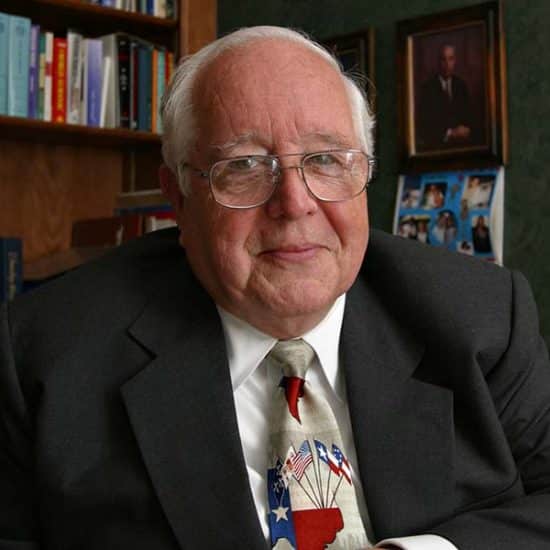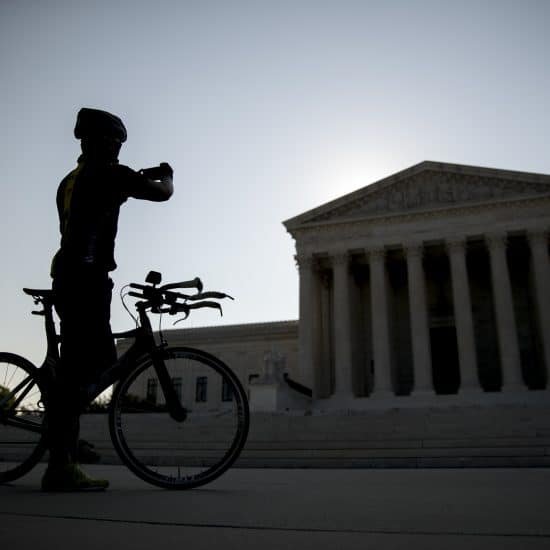By Vicki Brown, Word&Way News Writer
Kansas City — The Missouri Baptist Convention and five of its related entities may likely wait at least three months for an appeals court ruling. Attorneys for the two sides in a nearly three-year legal battle presented oral arguments April 5 in the Missouri Court of Appeals, Western District, in Kansas City.
The two sides were in court because the MBC appealed a March 11, 2004, ruling by Cole County Circuit Court Judge Thomas Brown that the MBC Executive Board and six affiliated churches did not have the legal standing, or right, to file their Aug. 13, 2002, lawsuit because none are "members" of the MBC.
In 2001, Missouri Baptist University, Windermere Baptist Conference Center, Missouri Baptist Foundation and Word&Way changed their charters to allow each to elect its own trustees rather than to continue to allow the convention to elect them. The Baptist Home trustees made the same change a year earlier.
The MBC filed legal action to seek to force the institutions to rescind the new charters.
The six churches that joined the Executive Board in the lawsuit include Concord Baptist Church, Jefferson City; Oakwood Baptist Church, Kansas City; Springhill Baptist Church, Springfield; and First Baptist churches of Arnold, Bethany and Branson.
Representing the MBC, attorney Dennis Owens argued that the convention's constitution and bylaws are clear. The convention is made up of churches, with messengers that represent them at the annual meeting, he said.
A Kansas City-based lawyer, Owens specializes in appellate practice, including civil and criminal appeals cases.
The word "convention" has two meanings, much as the word "church" does, he said. "Church," he said, can be used to refer to the building itself or to the congregation. The word "convention" can mean the meeting of messengers that takes place for three days each year, or it can mean the messengers themselves.
Appellate Judge Robert Ulrich noted that the MBC constitution and bylaws seem to indicate the convention is its messengers.
"We as a court are obligated…to look at the contract…. The contract specifically talks about the convention as messengers," he said.
Judge Ulrich added that the constitution and bylaws do not refer to the churches as members.
Owens said the messengers represent the member churches. If the messengers are members, he argued, Judge Brown erred when he would not allow the MBC to amend its legal action in 2004.
That year, the convention requested the judge to reconsider his March 11 ruling and sought to amend the legal action by substituting messengers for the six listed churches. Judge Brown denied both requests on April 7, 2004. The MBC filed a notice of appeal in the Court of Appeals on July 2.
Lawrence Tucker of Armstrong, Teasdale in Kansas City responded for the five entities at the Wednesday hearing. In response to a question by Judge Harold Lowenstein, Tucker noted that an unincorporated association, such as the MBC, must be represented by its members.
Judge Ulrich asked Tucker if the Executive Board could act on the messengers' behalf. Noting the MBC's documents allow the Executive Board to conduct only a limited amount of business for the convention, Tucker responded that messengers could act "through kind of a class action…through an agent that can act fairly and ably."
Owens suggested that because of the five entities' actions, the MBC had "lost control" of a quarter-of-a-billion dollars. When Judge Lowenstein asked Tucker if the agencies had taken the ministries, the attorney responded that they had not. "They all still do their historic ministry…. None of that's changed…only the governance has changed," he said.
The convention's appeal also includes Judge Brown's dismissal of the case against the Secretary of State's office. The judge ruled on Feb. 3, 2003 that the secretary's duty under Missouri law is "ministerial" only and that the office must file completed corporate documents.
On Wednesday, attorney James Laten, representing the Secretary of State, pointed to that "ministerial" duty. The filing does not affect the validity of the documents, he said. The Secretary of State only has to file them.
Through the appeal process, the MBC also seeks to overturn Judge Brown's Nov. 10, 2003, order that the university has no corporate members, including the convention. (04-22-05)






